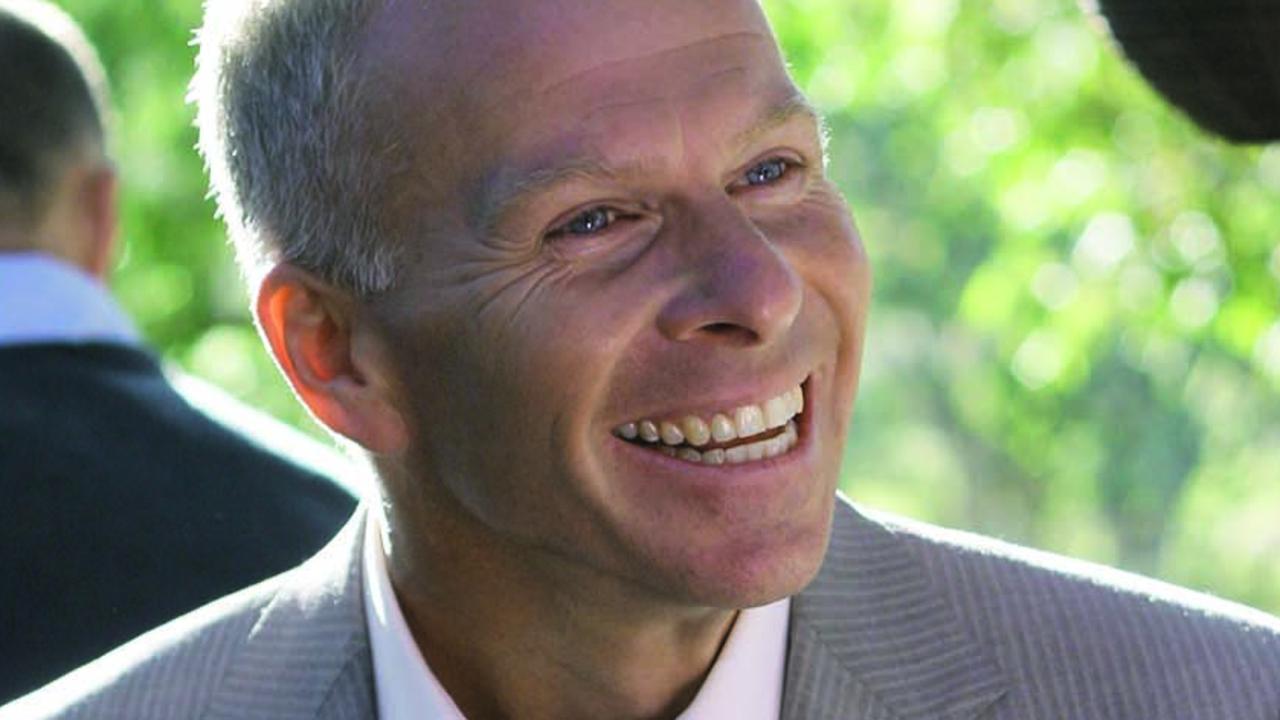Dragan Vasiljkovic linked to Slobodan Milosevic's hit squad
INTERNATIONAL prosecutors have alleged "Captain Dragan" Vasiljkovic was a player in a criminal enterprise controlled by the Serbian dictator.
INTERNATIONAL prosecutors have alleged accused war criminal and Australian citizen "Captain Dragan" Vasiljkovic was a player in a criminal enterprise directly controlled by Serbian dictator Slobodan Milosevic that conspired to organise ethnic cleansing in the former Yugoslavia.
Reports and memos penned by the former Perth golf instructor, who has eluded the Australian Federal Police for the past two weeks, have been presented in a war crimes trial in The Hague as evidence of the alleged chain of command linking Milosevic's interior ministry to its secret police service, which set up camps to train paramilitary troops that later carried out war crimes.
The AFP is hunting Mr Vasiljkovic, who is wanted by the Croatian government to face a war crimes investigation. It is understood the AFP believes the Belgrade-born 55-year-old is in hiding somewhere in this country.
The Australian government has been content to regard Mr Vasiljkovic's case as an extradition matter and has failed to initiate any domestic investigations since The Australian revealed in 2005 he was living in Perth under the name Daniel Snedden.
Nationwide News, publisher of The Australian, yesterday filed an application to stay the accused war criminal's appeal against a NSW Supreme Court judgment that found allegations that Mr Vasiljkovic had commanded troops in a massacre and had tortured prisoners of war were true.
As Mr Vasiljkovic lived freely in the Australian community for six months last year while awaiting a High Court hearing, prosecutors at the International Criminal Tribunal for the Former Yugoslavia were alleging he was part of a Balkans criminal conspiracy.
A commander of the secretive Serbian special units, Franko Simatovic, Mr Vasiljkovic's closest ally from the early 1990s in the self-proclaimed republic of the Krajina, is on trial in The Hague, together with "the most powerful man" in Milosevic's state security service, Jovica Stanisic.
During the prosecution opening of the case in June last year, Mr Simatovic, known under his alias "Frenki" during the Balkans conflict, was alleged to have created, together with Mr Vasiljkovic and others, a "formidable, well-equipped fighting force that not only prevented the Croatian government from imposing its will in the Krajina but would be used to ethnically cleanse the Krajina of non-Serbs".
Prosecutor Dermot Groome alleged that the men trained at the camps set up by Mr Simatovic and Mr Vasiljkovic and others went on to commit atrocities.
Mr Groome told The Hague court Mr Vasiljkovic was disapproving of undisciplined behaviour in paramilitary troops.
"To Captain Dragan's credit, his initial view of this behaviour was that it was something that needed to be corrected," Mr Groome said.
Mr Vasiljkovic denies all of the war crimes allegations against him. He insists he led a disciplined paramilitary unit and refused to tolerate any criminal behaviour among troops.
But a prosecution brief of evidence tendered at The Hague makes clear Mr Vasiljkovic was part of Milosevic's interior ministry power clique.
"Dragan Vasiljkovic took his orders from Jovica Stanisic," the brief says. "He was used as a screen to hide the role of the Serbian DB (state security service)."
Several reports and memos penned by Mr Vasiljkovic have been tendered by prosecutors to allege the chain of command from the interior ministry to the secret police. In one letter dated November 8, 1991, Mr Vasiljkovic revealed his "obligation towards the State Security Service of the Republic of Serbia" and said his activities were "fully in accordance with the mentioned service".
An intelligence report drafted by an official in Milosevic's security administration headed "Some information on Daniel Snedden, Australian citizen, alias Kapetan Dragan" lays out Mr Vasiljkovic's "close" connection with "several organs of the MUP (internal affairs ministry) of Serbia" who are "engaged in the same mission" as Mr Simatovic. "We are talking about an organ or person engaged on behalf of the MUP of Serbia," the intelligence report, dated August 28, 1991, said.
The Stanisic and Simatovic trial is continuing.




To join the conversation, please log in. Don't have an account? Register
Join the conversation, you are commenting as Logout